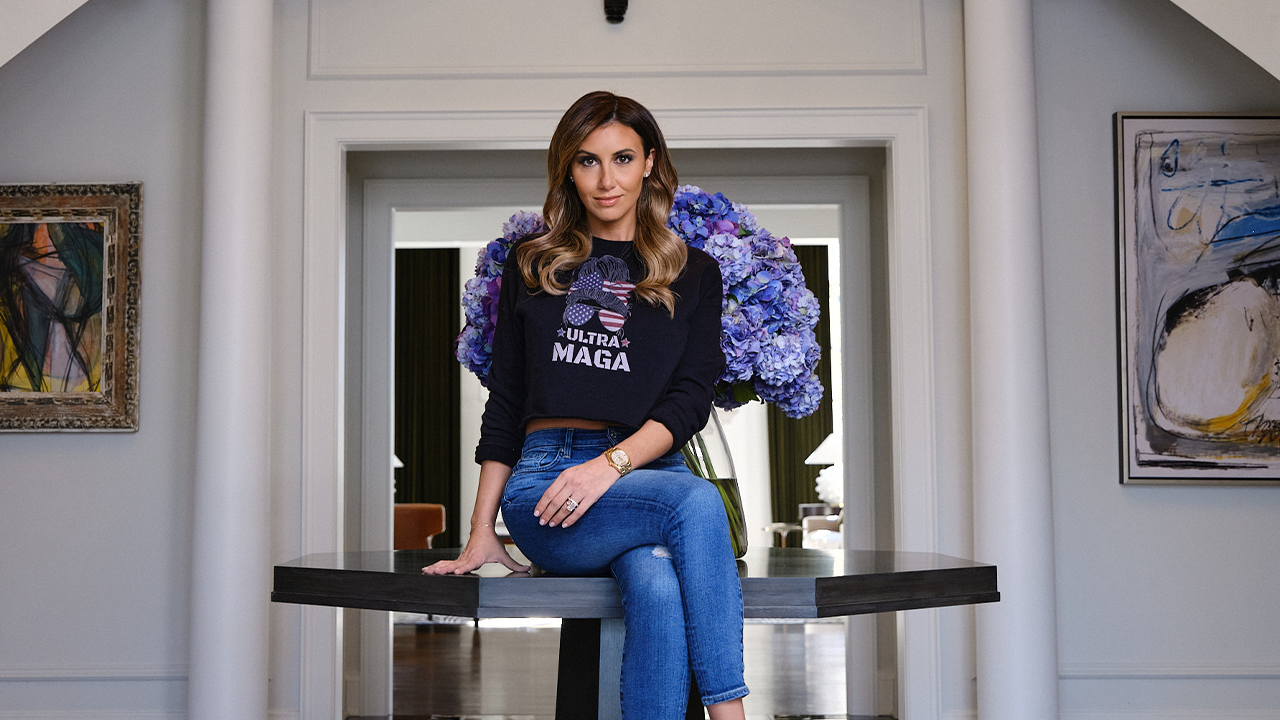Finance
Former NFL player Carl Nassib: ‘Gen Z college players are living the dream–but they could become cautionary tales if they don’t educate themselves about personal finance’

Young athletes dream big. They want to throw a game-winning touchdown in a packed stadium or hit a buzzer-beater in sold-out arenas. Those who are fortunate enough to live out these dreams in professional leagues have a chance for a big payday. Signing a multi-million-dollar contract nevertheless opens the door for major financial missteps.
Some professional athletes end up making more money than most people will see in their lifetime. Yet for every Michael Jordan and John Elway who parlayed their success into the business world, there are many more tragic stories of gifted athletes blowing it all, no matter the sport.
Now, with the NCAA’s name, image, and likeness (NIL) deals translating to big-money contracts at a much younger age, college athletes could also become cautionary tales if not given the proper skills to handle their payouts.
For the 520,000+ student athletes who competed in NCAA championship sports last year, their world is dramatically different from my time at Penn State. I started out my college career as a walk-on and worked minimum-wage jobs to earn extra cash. While most students were on summer vacation, I was in State College training in the morning, taking classes in the afternoon, and scooping ice cream at night at the famous Penn State Creamery.
It would have been a dream to earn an income from my role as an All-American at one of history’s most prestigious football programs or an endorsement from a local institution. But that dream can’t come without education. I wouldn’t have known how to manage the sudden windfall at such a young age.
It’s up to universities, collectives, and collegiate sports teams to step up and provide the right education around NIL windfalls–which have the potential to set young athletes on the path to lifelong financial freedom and even begin establishing generational wealth. Otherwise, a knowledge void threatens to leave them worse off than where they started.
Success is when preparation meets opportunity. Athletes need to prepare by getting educated so they can succeed even beyond their payday.
Although NIL income has the potential to exceed salaries in pro sports, the NIL era, now two years in, remains overshadowed by confusion and mistrust.
The majority of students were not prepared for NIL’s onset. Without the right planning, college athletes run the risk of taking on profitable endorsement deals and getting hit with similarly high tax bills without the means to pay them, or trouble navigating contingent deals with money at risk should the student not reach certain benchmarks.
In these scenarios, NIL can be the worst financial thing that ever happened to them.
Yes, history shows that young athletes are at risk of blowing through their cash. But more than that, for 18-, 19-, and 20-year-olds, figuring out how to maximize long-term benefits from NIL contracts can be a daunting if not paralyzing task.
Financial stress was a constant during my years on the Penn State football team. I haven’t taken a paycheck for granted since, and I made it my mission during my time in the NFL to help my teammates and peers build a solid financial foundation. Thankfully, financial awareness has started to gain a foothold in the locker room since the NFLPA and other players’ associations began offering financial coaching.
Gen Z, which includes the latest crop of incoming college players, tends to score the lowest in financial literacy. More education is needed across the board, and it’s heartening to see the nationwide push to educate young adults about basic money management, with several states passing legislation in the past year that mandates financial literacy as a high school graduation requirement.
It’s even more timely when we consider the scarcity of athletic scholarships, compelling many college athletes to take on crushing student loans and adding to the national student debt crisis. The lucky ones who secured funding must be coached on how to use this advantage as a springboard to transition successfully into the working world.
Athletes are used to being under the guidance of their coaches, who help to hone their skills and improve their play. It’s a natural extension for collegiate sports and university administrators–as well as the collectives that many young athletes rely upon for NIL support–to step up as financial cheerleaders off the field.
Any young athlete with a chance at a NIL deal would benefit from budgeting, saving, and investing tools before being bestowed a fortune. In the Wild West of NIL, no one wants to become the next cautionary tale–and with the right financial skills and knowledge, they can focus on dreaming big.
Carl Nassib is a former outside linebacker who played in the NFL for seven seasons, founder and CEO of social media platform Rayze, and contributor to NIL Long Game by Financial Finesse, a comprehensive online financial literacy certification program available at no cost to colleges, universities, and student athletes.
More must-read commentary published by Fortune:
- Economic pessimists’ bet on a 2023 recession failed. Why are they doubling down in 2024?
- COVID-19 v. Flu: A ‘much more serious threat,’ new study into long-term risks concludes
- Access to modern stoves could be a game-changer for Africa’s economic development–and help cut the equivalent of the carbon dioxide emitted by the world’s planes and ships
- The U.S.-led digital trade world order is under attack–by the U.S.
The opinions expressed in Fortune.com commentary pieces are solely the views of their authors and do not necessarily reflect the opinions and beliefs of Fortune.

Finance
Stock market today: Asian shares fall as China reports lackluster data, while bitcoin hits new highs

BANGKOK (AP) — Shares retreated Monday in Asia after China reported lackluster economic indicators for November, while bitcoin surged to fresh highs, topping $106,000.
Oil prices fell and U.S. futures were little changed.
Bitcoin was trading at $104,948 early Monday, up 3.4% but down from an earlier high of $106,495.
The price of the cryptocurrency has surged since the election in November given U.S. President-elect Donald Trump’s bitcoin-friendly stance. Trump signaled a lighter regulatory approach to digital currencies with his choice of crypto advocate Paul Atkins to be the next chair of the Securities and Exchange Commission. Bitcoin was trading below $70,000 before the Nov. 5 election.
A report Monday showed Chinese retail sales slowed in November, while growth in factory output was flat and home sales declined. The report said the economy and employment were stable, but noted a complicated “external environment,” reflecting unease over the outlook in coming months once U.S. President-elect Donald Trump takes office, potentially delivering on promises to sharply hike tariffs on imports from China.
Japan’s Nikkei 225 index edged 0.1% lower, to 39,438.74, while the Hang Seng in Hong Kong lost 0.8% to 19,821.24.
The Shanghai Composite index was almost unchanged, at 3,390.91.
South Korea’s Kospi lost 0.3% to 2,486.47 as South Korean law enforcement authorities were pushing to summon impeached President Yoon Suk Yeol for questioning over his short-lived martial law decree and the Constitutional Court met to discuss whether to remove him from office or reinstate him.
Taiwan’s Taiex edged 0.1% higher, while the Sensex in India fell 0.4%. Thailand’s SET dropped 0.9%.
On Friday, major stock indexes on Wall Street drifted to a mixed finish Friday, capping a rare bumpy week for the market.
The S&P 500 ended essentially flat, down less than 0.1% at 6,051.09. The benchmark index posted a loss for the week, its first after three straight weekly gains.
The Dow Jones Industrial Average slipped 0.2% to 43,828.06, while the Nasdaq composite rose 0.1% to 19,926.72, ending just below the record high it set on Wednesday.
There were more than twice as many decliners than gainers on the New York Stock Exchange.
Gains in technology stocks helped temper losses in communication services, financials and other sectors of the market.
Broadcom surged 24.4% for the biggest gain in the S&P 500 after the semiconductor company beat Wall Street’s profit targets and gave a glowing forecast, highlighting its artificial intelligence products. The company also raised its dividend.
Finance
South Korean authorities to continue monitoring financial markets

SEOUL (Reuters) – South Korea’s finance ministry said on Monday authorities would continue monitoring financial and foreign exchange markets.
South Korea’s parliament on Saturday voted to impeach President Yoon Suk Yeol over his short-lived attempt to impose martial law, a move that had shocked the nation and its financial markets.
(Reporting by Jihoon Lee; Editing by Lisa Shumaker)
Finance
Italy’s Meloni pledges financial discipline as parliament debates budget

By Giselda Vagnoni
ROME (Reuters) – Italy’s Prime Minister Giorgia Meloni said on Sunday she would lead the government responsibly until the end of its mandate as parliament debates a budget aimed at supporting the euro zone’s third-largest economy while trimming its debt.
Rome, which was put under the EU’s excessive deficit procedure this year, hopes to bring its deficit below the European Union’s 3% of gross domestic product (GDP) ceiling in 2026 from 3.8% targeted this year and 7.2% last year.
Italy’s parliament, in which Meloni holds a large majority, will on Tuesday begin a debate on the 2025 budget, which must be approved by Dec. 31.
“Each of us is aware of the responsibility we have on our shoulders, and we will honour to the last day the task given to us by the Italians in this nation,” Meloni said at a meeting of her Brothers of Italy party in Rome.
Ratings agencies Fitch and DBRS upgraded Rome’s outlook to “positive” from “stable” in October, citing improved fiscal path.
Investors consider the country’s high bond yields as attractive given the stable political situation and the likelihood the European Central Bank’s continues to cut rates.
The premium investors pay to hold Italian government bonds over top-rated German ones narrowed on Friday to around 113 basis points, from more than 240 basis points on Sept. 26 2022, when Meloni’s coalition won the general election.
The positive sentiment in the Italian bond market contrasts with neighbouring France, whose political crisis is seen as an obstacle to reducing its deficit, leading to a credit rating downgrade by Moody’s.
INTERNATIONAL CREDIBILITY
Meloni, who announced her resignation on Sunday as president of the European Conservatives and Reformists (ECR) party, said the stability of her government was Italy’s “greatest element of strength” because it “guarantees international credibility”.
But despite falling annual budget deficits, Italy’s debt, which is proportionally the second-highest in the 20-nation bloc, is forecast by Rome to climb from 134.8% of gross domestic product last year to 137.8% in 2026, before gradually declining.
Economic growth is also a concern, with the latest figures pointing to an annual rate of almost half of 1% forecast.
The 2025 budget funds stimulus measures including income tax cuts for lower earners, while roughly 4 billion euros ($4.20 billion) will be raised from changes to tax on banks and insurance products.
According to amendments to Rome’s 2025 budget seen by Reuters, the government is scaling back plans to cut around 4.6 billion euros from the funds earmarked for the automotive industry between now and 2030 by restoring 200 million euros a year in 2026 and 2027.
-

 Technology1 week ago
Technology1 week agoStruggling to hear TV dialogue? Try these simple fixes
-

 Business7 days ago
Business7 days agoOpenAI's controversial Sora is finally launching today. Will it truly disrupt Hollywood?
-

 Politics3 days ago
Politics3 days agoCanadian premier threatens to cut off energy imports to US if Trump imposes tariff on country
-
/cdn.vox-cdn.com/uploads/chorus_asset/file/25782636/247422_ChatGPT_anniversary_CVirginia.jpg)
/cdn.vox-cdn.com/uploads/chorus_asset/file/25782636/247422_ChatGPT_anniversary_CVirginia.jpg) Technology4 days ago
Technology4 days agoInside the launch — and future — of ChatGPT
-
/cdn.vox-cdn.com/uploads/chorus_asset/file/25789444/1258459915.jpg)
/cdn.vox-cdn.com/uploads/chorus_asset/file/25789444/1258459915.jpg) Technology2 days ago
Technology2 days agoOpenAI cofounder Ilya Sutskever says the way AI is built is about to change
-

 Politics2 days ago
Politics2 days agoU.S. Supreme Court will decide if oil industry may sue to block California's zero-emissions goal
-

 Politics4 days ago
Politics4 days agoConservative group debuts major ad buy in key senators' states as 'soft appeal' for Hegseth, Gabbard, Patel
-
/cdn.vox-cdn.com/uploads/chorus_asset/file/25546252/STK169_Mark_Zuckerburg_CVIRGINIA_D.jpg)
/cdn.vox-cdn.com/uploads/chorus_asset/file/25546252/STK169_Mark_Zuckerburg_CVIRGINIA_D.jpg) Technology2 days ago
Technology2 days agoMeta asks the US government to block OpenAI’s switch to a for-profit


















